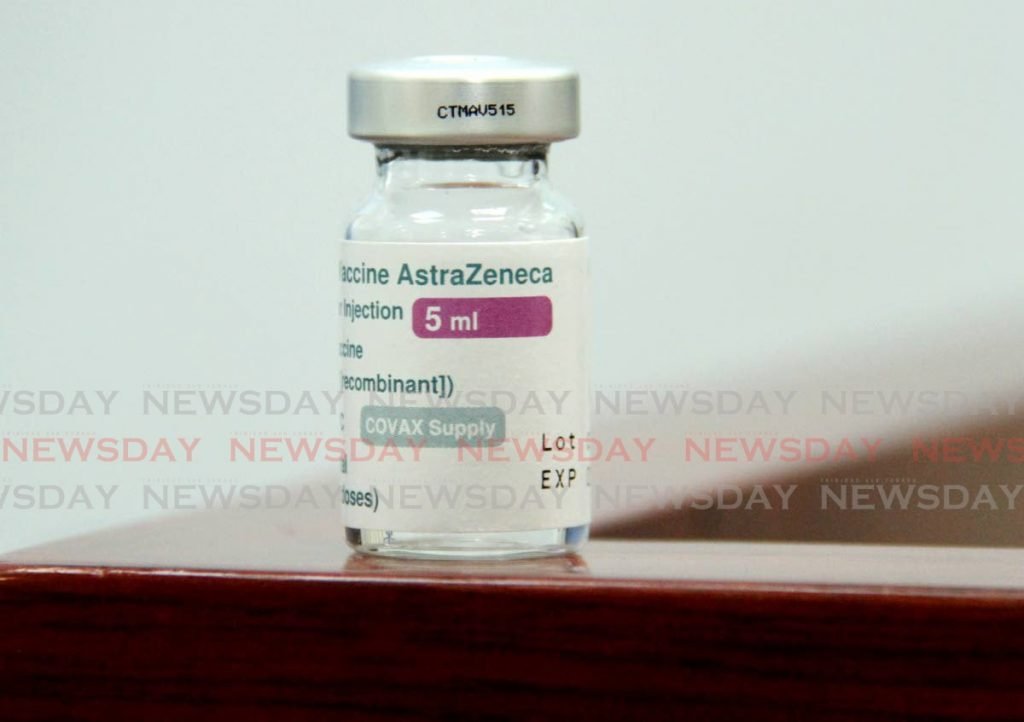374,000 doses of covid19 vaccines distributed in Caribbean so far

UNICEF's regional adviser for Latin America and the Caribbean Maaika Arts said 374,000 doses of vaccines have been distributed to Caribbean countries since the Covax rollout began in February.
Arts was speaking at the International Chamber of Commerce’s (ICC's) campaign to end the pandemic in the region, a virtual event hosted by the ICC on Wednesday.
She said Covax deliveries in Latin America and the Caribbean as of April 27 included 31 countries and 6.9 million doses, with 374,000 doses for the Caribbean specifically.
Arts said the delivery of Covax vaccines began in Ghana on February 24.
Covax is a collaborative initiative between organisations such as Unicef and the World Health Organisation (WHO) which aims to ensure global equitable access to the covid19 vaccine.
As of April 27, more than 48 million covid19 vaccine doses have been shipped to 120 participants, including Trinidad and Tobago.
Arts said in Latin America and the Caribbean, there are two types of vaccine recipients: those countries receiving the vaccine at no cost – including Bolivia, Dominica, and St Vincent and the Grenadines – and self-financing economies such as TT.
She said there have been some distribution challenges, including storms, hurricanes, and the recent volcanic eruption of the La Soufriere volcano in St Vincent, as well as reaching remote areas, and rumours of vaccine hesitancy.
Arts also said the private sector plays a crucial role in the vaccination process. It can lead the way in promoting and supporting vaccination of staff, in keeping with government prioritisation plans, and contribute to funding for distribution and equipment.
The private sector can also assist the government, she said, by providing technical support and offering services at a reduced cost.
Global policy director of the ICC Andrew Wilson addressed some of the challenges of securing the vaccine for some countries. He said one continues to be "vaccine nationalism" – rich countries securing deals, holding supplies, and giving them to their own citizens.
“This is a huge challenge,” he said, adding it made no sense and could ultimately lead to "economic suicide."
“No one is safe until everyone is safe.”
He said ICC estimated the cost of unequal vaccine access to be as high as US$9 trillion in 2021.
Hoarding the vaccine will not mean the end of the pandemic, he said: over the past year manufacturers have reported more worldwide supply chain delays than in over two decades, and manufacturing companies in Germany are reporting shortages of intermediate goods.
“Vaccine production can require more than 200 individual components, which are often manufactured in different countries. If supply of any critical item falls short, it can disrupt the entire manufacturing process.”
He said other issues in getting the vaccine to everyone include US manufacturers restricting shipments to countries that have not adopted legislation to deal with liability risks.
He also said Covax is still underfunded by several billion dollars needed "to secure doses for the world’s most vulnerable.”
As part of a global business agenda, Wilson said, the private sector can assist by funding multilateral procurement and distribution efforts.
“It’s an investment, not a donation,” he argued.
The private sector can also support interventions to strengthen the global vaccine-supply chain and remove legal barriers to the rollout of the vaccines.


Comments
"374,000 doses of covid19 vaccines distributed in Caribbean so far"